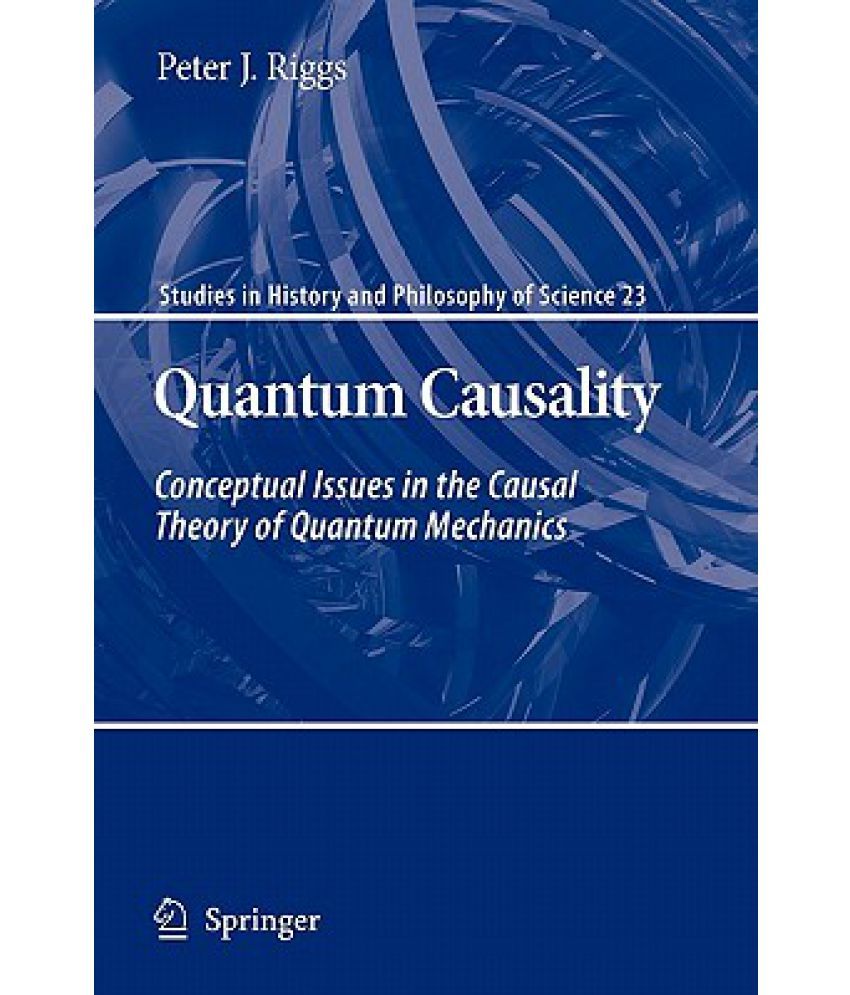Something went wrong. Please refresh the page and try again.
Something went wrong. Please refresh the page and try again.
Notifications can be turned off anytime from settings.
Item(s) Added To cart
Qty.
Something went wrong. Please refresh the page and try again.
Something went wrong. Please refresh the page and try again.
Exchange offer not applicable. New product price is lower than exchange product price
Please check the updated No Cost EMI details on the payment page
Exchange offer is not applicable with this product
Exchange Offer cannot be clubbed with Bajaj Finserv for this product
Product price & seller has been updated as per Bajaj Finserv EMI option
Please apply exchange offer again
Your item has been added to Shortlist.
View AllYour Item has been added to Shopping List
View AllSorry! Quantum Causality: Conceptual Issues in the Causal Theory of Quantum Mechanics is sold out.


You will be notified when this product will be in stock
On the Back Cover
This is a treatise devoted to the foundations of quantum physics and the role that causality plays in the microscopic world governed by the laws of quantum mechanics. There is no sharp dividing line between physics and philosophy of physics. This is especially true for quantum physics where debate on its interpretation and the status of the various entities postulated has raged in both the scientific and philosophical communities since the 1920s and continues to this day. Although it is readily granted that quantum mechanics produces some strange and counter-intuitive results, it is argued in Quantum Causality that quantum mechanics is not as weird as we might have been led to believe.
The dominant theory of quantum mechanics is called Orthodox Quantum Theory (also known as the Copenhagen Interpretation). Orthodox Quantum Theory is a theoretical tool for making predictions for the possible results of experiments on quantum systems and requires the intervention of an observer or an observer s proxy (e.g. a measuring apparatus) in order to produce predictions. Orthodox Quantum Theory does away with the notion of causality and denies the existence of an underlying quantum realm.
The Causal Theory is not well known within the physics community and many physicists who do know of it are generally dismissive in their attitudes. This is a historical legacy inherited by the majority of the physics community from the most influential founders of quantum mechanics, Niels Bohr and Werner Heisenberg. They both denied the independent existence of a quantum level of reality and declared that causality does not apply to quantum events.
Quantum Causality shows that the Causal Theory of Quantum Mechanics is a viable physical theory that provides realistic explanations for quantum phenomena. Much of what is argued for in this book will be controversial but, at the very least, these arguments will likely engender some lively debate on the various issues raised.
"The images represent actual product though color of the image and product may slightly differ.
Register now to get updates on promotions and
coupons. Or Download App